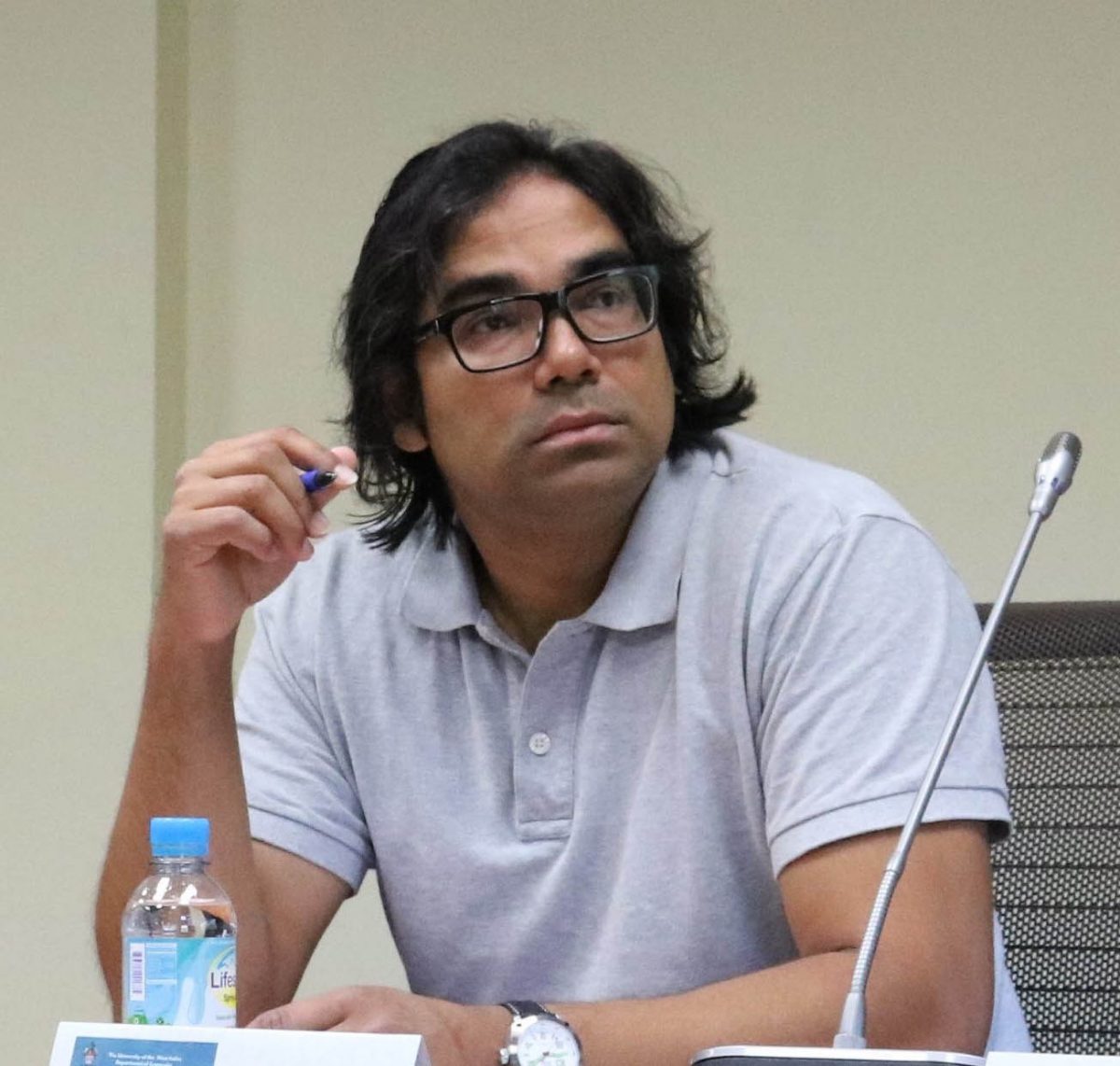The PPP/C government’s version of the Natural Resource Fund Act is no different from the earlier one by the APNU+AFC coalition in relation to the concentration of powers.
This is the contention of economist, Professor Tarron Khemraj in his column in today’s Sunday Stabroek.
Withering criticism has greeted the government’s decision to have the Natural Resource Fund Act passed on December 29 last year without any consultation or referral of the draft law to a Special Select Committee of Parliament or the Natural Resource Committee for expert review. The law was assented to on December 30, 2021 and an order promulgated a day later bringing the Act into operation as of January 1st, 2022. PPP/C officials have argued that their version of the Act was far better than APNU+AFC’s and that broad powers concentrated in the Minister of Finance have been removed.
Khemraj disagrees with this claim by the PPP/C government and expressed serious doubts about parts of the legislation.
“The first one pertains to the issue of independence of the Board. The degree of perceived independence from or control by a politician is not significantly different from the APNU+AFC’s version of the Act. The latter gave substantial power to the Minister of Finance, while the PPP/C’s version hands significant power to the President and subsidiary power to the Minister of Finance. While the President gets to determine the majority of members who will serve on the Board, the Minister of Finance has significant authority over the Investment Committee”, Khemraj said.
Under the PPP/C’s version of the Act, while the National Assembly and the Private Sector Commission will be identifying one candidate each for the board of the Natural Resource Fund, President Irfaan Ali will select one and possibly three in his own deliberate judgement, giving him control over this all-important oversight body.
“I find the desire of careered politicians to exercise complete control to be curious since the Board, the Investment Committee, and the proposed Public Accountability and Oversight Committee (PAOC) cannot dictate fiscal policy (annual budgets). The task of spending and taxing rests solely in the power of the elected administration. An astute government will always yield something to the parliamentary opposition, but that’s another discussion for another day…”, Khemraj said.
He added: “We can debate whether various proposed budgets express optimal project choice or timing – they often don’t – but career professionals cannot take away that power from elected politicians. In any case, most professionals will be hard-pressed to be independent in a place like Guyana. Most will likely be in some form of transactional relationship – explicitly or implicitly – with the government, or its proxies, as it assumes an ever-greater role – for better or worse – in the Guyanese economy. Therefore, why are politicians so insecure that their first-order instinct is to stamp out all checks and balances on good governance?”
Khemraj also took aim at the abandonment in the PPP/C legislation of a macroeconomic committee which had been in the APNU+AFC version and which was intended to guide on the amount of money that could be withdrawn from the NRF without disrupting the economy.
“Perhaps nothing so expresses this insecurity as the abandonment of the macroeconomic committee, which could have played a crucial role in not only suggesting the best amount of annual withdrawal, but also providing detailed insight into the potential risks of drawing down large amounts of US dollars and depositing them into the Consolidated Fund. The Act (see 20.1) also requires that the Minister of Finance provides three-year projections of oil revenues as he prepares budget proposals. The committee could have helped in this regard and prevented the need for ad hoc number plucking”, Khemraj asserted.
Moreover, he noted that the macroeconomic committee was meant to provide a data-driven approach for the management of the Fund.
“Investment management of large funds, whether active or passive, often rely on this kind of approach to decision making. We cannot invest without data and information. Converting data into useful information would have been a very helpful input for not only the government, but also the Board, the PAOC and civil society”, Khemraj contended.
A petition tendered to Parliament by Policy Forum Guyana and signed by 64 Guyanese calling for a deferral of debate on the Natural Resources Fund Bill until citizens could consider it was ignored.





